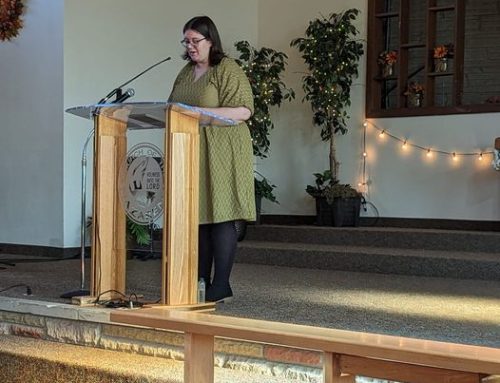Before starting this study, take a moment to read Mark 2:13-17. Although I’ll primarily be using the NIV version for the preparation of this study, you can read from whichever version you prefer.
In today’s passage, Jesus calls Levi to follow him. Levi was a tax collector, which made him a social pariah. While tax collectors today (at least in the United States) can do their jobs without stealing, tax collectors at that time had to charge extra to cover their lifestyles. This often led to them taking advantage of this, charging people much more than was necessary.
After calling Levi to follow him, Jesus eats at Levi’s house with many tax collectors and sinners. The Pharisees are appalled that Jesus would eat with people they considered scum. They asked the disciples why Jesus was eating with them.
Jesus replied, “It is not the healthy who need a doctor, but the sick. I have not come to call the righteous, but sinners” (Mark 2:17).
Pharisees & Their Rules
The Pharisees had a lot of laws to help them preserve their holiness. They were extremely afraid that things would corrupt them, so they made sure nothing could make them ceremonially unclean. This isn’t too different than modern Christian attempts to keep the world out. Just like modern rules (like prohibiting secular music) are often made with good intentions, the Pharisees’ rules had gone awry and missed the point.
Jesus wasn’t worried about his holiness being corrupted by the people around him. He knew he couldn’t be corrupted just by eating with tax collectors and sinners. More importantly, he knew that those people would not come to saving faith if no one went to them. So he did.
When Jesus ate with tax collectors and sinners, he showed people that he cared more about following the heart of God than following rules made and passed down by religious institutions. Jesus took his message to those who needed it most. And who needs it more than sinners?
Jesus’ Ability to Transform Anyone
Levi wouldn’t be a leader’s first choice for a follower, yet Jesus still called him. We see this in all the stories of those called by Jesus. Instead of going to find the Pharisees and educated religious leaders, he went to find the fishermen and tax collectors.
Growing up in the church, I’ve always heard people say, “God doesn’t call the equipped, but equips the called.” This story is a reminder of that truth. Jesus isn’t worried about whether a follower is fully matured in their faith or accomplished in their education, but whether they have a heart willing to follow.
Application
I’ve been reading a memoir by Thomas A. Tarrants (that I’ll be reviewing in two weeks). In it, he writes about his early life as a Klansman and domestic terrorist. He was arrested trying to plant a bomb, then later escaped prison.
However, Tarrants later came to life-changing faith in Jesus. He went on to have a long career in ministry after receiving an early release. While everything in his early life pointed to someone too far gone, God had other plans.
We have a tendency to count ourselves out of God’s plans because we’re too busy looking at our lives through worldly eyes. Thomas Tarrants had every reason to believe he’d either die in prison or only leave as an old man. Even so, he trusted that the parole board would see his changed heart and open the door to his future ministry.
Have you been counting yourself out when Jesus is calling you to get up and follow him? Like Levi, we have a choice. We can sit and think, “I’ve done too much” or “I’m not good enough.” Or, like Levi, we can get up, follow Jesus, and introduce him to our friends.
The choice is yours.




Leave A Comment